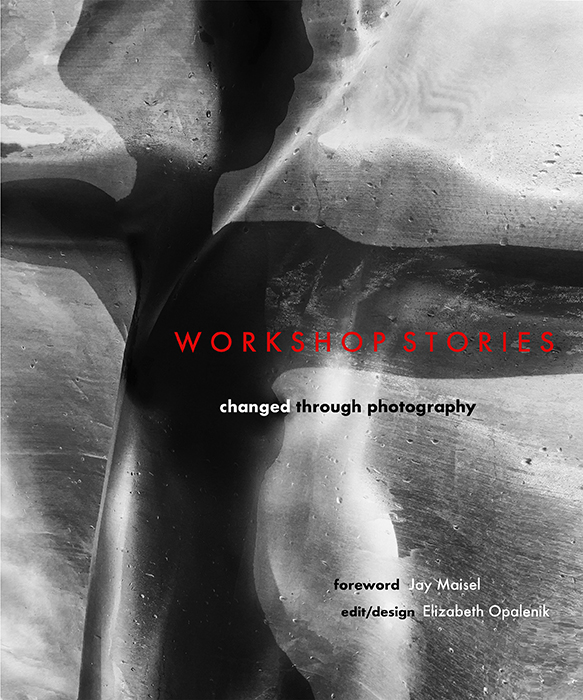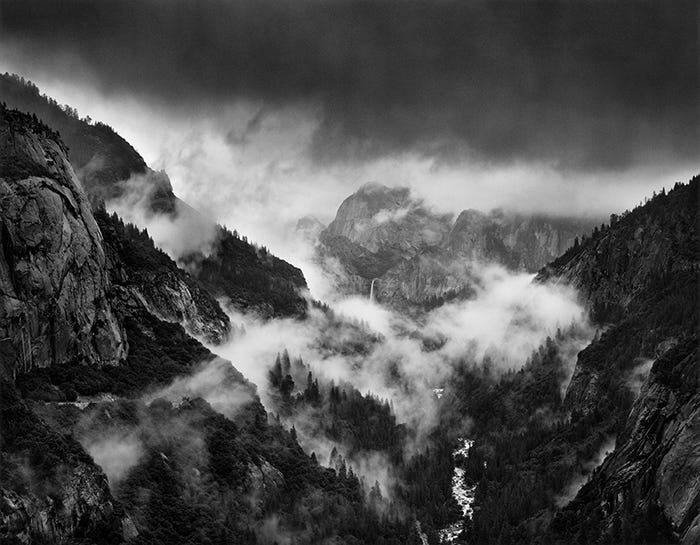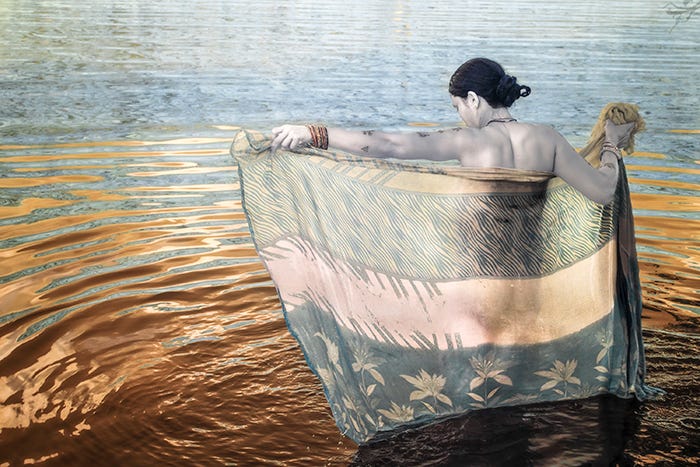 In her opening comments for the recently released, Workshop Stories, designer/editor Elizabeth Opalenik sums up the best part of being a workshop teacher as well as a student of the same. Workshops, especially those rooted in the arts are mostly about stories. The manner in which the teacher creatively instructs students with stories. Stories about how light reflects, how you need light and shadows to create interest in the finished product.
In her opening comments for the recently released, Workshop Stories, designer/editor Elizabeth Opalenik sums up the best part of being a workshop teacher as well as a student of the same. Workshops, especially those rooted in the arts are mostly about stories. The manner in which the teacher creatively instructs students with stories. Stories about how light reflects, how you need light and shadows to create interest in the finished product.
Even though it was in physical preparation for only a little more than a year, she had “been thinking about this book for years.”
The book is beautifully produced and heavy. Meaning that it is not to be taken lightly. One may cruise through it at first and take a look at the pictures. A few of them will capture the viewer’s interest and will then compel them to slow down a bit, maybe even do some reading. They will be rewarded, greatly. The recollections are at once insightful, as well as humorous.
On a couple of occasions in the past, I was honored to be able to photograph a couple of workshops for the presenters, Opalenik’s was one of them. The only problem, I thought at the time, is that she told me that in order to photograph it for a story, I had to take the class as well.
“I did and it changed the whole course of my photography!”
It was a very revealing process because I was also involved in the process as well as documenting it. I was able view all sides of a workshop and realize how much the process meant to each person, no matter their role.
Many times, one will take a workshop and then go home. Some will carry on the process and others will leave what they learned at the door. Those workshop leaders who tell stories interjected with personal takes on their own experiences with the subject will always have their students “carry on.”
The subject matter is important, but few will argue that it is in the stories that they learn more readily. Surprisingly, the teachers can learn as much as the students. That idea is illustrated 100 times in the book.

Alan Ross (above), a long time Ansel Adams assistant and printer, and a long-time teacher, says of the workshop experience, “Workshops are not just a photo-learning experience, they are a life experience.
Selected Comments:
Renie Haiduk: But at its core, the workshop experience remains much the
same. And while I have recently retired, I will always remember the adventures and lasting friendships that I made, as well as the smiles
on people’s faces at the end of a workshop week, giving affirmation to what was accomplished together. It has been a fabulous era for me!
Reid Callanan: A flyer from The Maine Photographic Workshops (MPW) arrived at the camera store where I worked in the winter of 1976. Two words jumped off the page and grabbed me–Maine and Photographic. I was in love with both the state of mind and the State of Maine. At that moment I decided to visit Rockport and become part of the Maine Photographic whatever a workshop was.
The abrupt beginning and ending of that day in early April 1976 changed my life. I spent the next fourteen years at MPW discovering the magical power of creating images, admiring the genius of David Lyman, and learning what a workshop could be.
Keith Carter: At a festive dinner of pasta, paella, and wine, I gleefully told our new colleagues that since we did not have a common language, they were probably fucked and had wasted their money. They laughed. I told them that since I was older, they should refer to me as “The Great Kahuna”, “Ho-Daddy” or “Big Queso.” They laughed again. Fueled by the wine, I explained patiently that my expectations were to be revered, respected, and treated with great deference. Once again, they toasted each other and laughed. I told them that they had better plan to work hard or “the shit’s gonna’ hit the fan.”
P.S. The rest of this story is worth the price of the book, alone!
Karen Kuehn: I taught many a class at the Santa Fe Photographic Workshops and each had its own special connections. The first was so raw and pure. I humbly declined, since I was a shooter not a teacher, when first invited but
Reid pretty much courted me into the gig.
I am grateful for those teaching years. I see many of my former students in the world creating, and I can only hope that I touched their lives with some positive thoughts that have given them incredible tools to make their images and lives more memorable. In turn, I too, have been touched.

Nevada Wier: (above) Powerful transformations happen when we travel outside our normal frame of reference, and it becomes cathartic when one can express that in art. I love my digital camera and digital printing darkroom. But the rhythm–photographing, anticipating, and then the anguish and relief of the edit–that rhythm remains the same.
I’ve discovered that teaching is part of my life and strengthens my art. The better I am at helping someone realize their own photographic vision, the more I understand my own.
